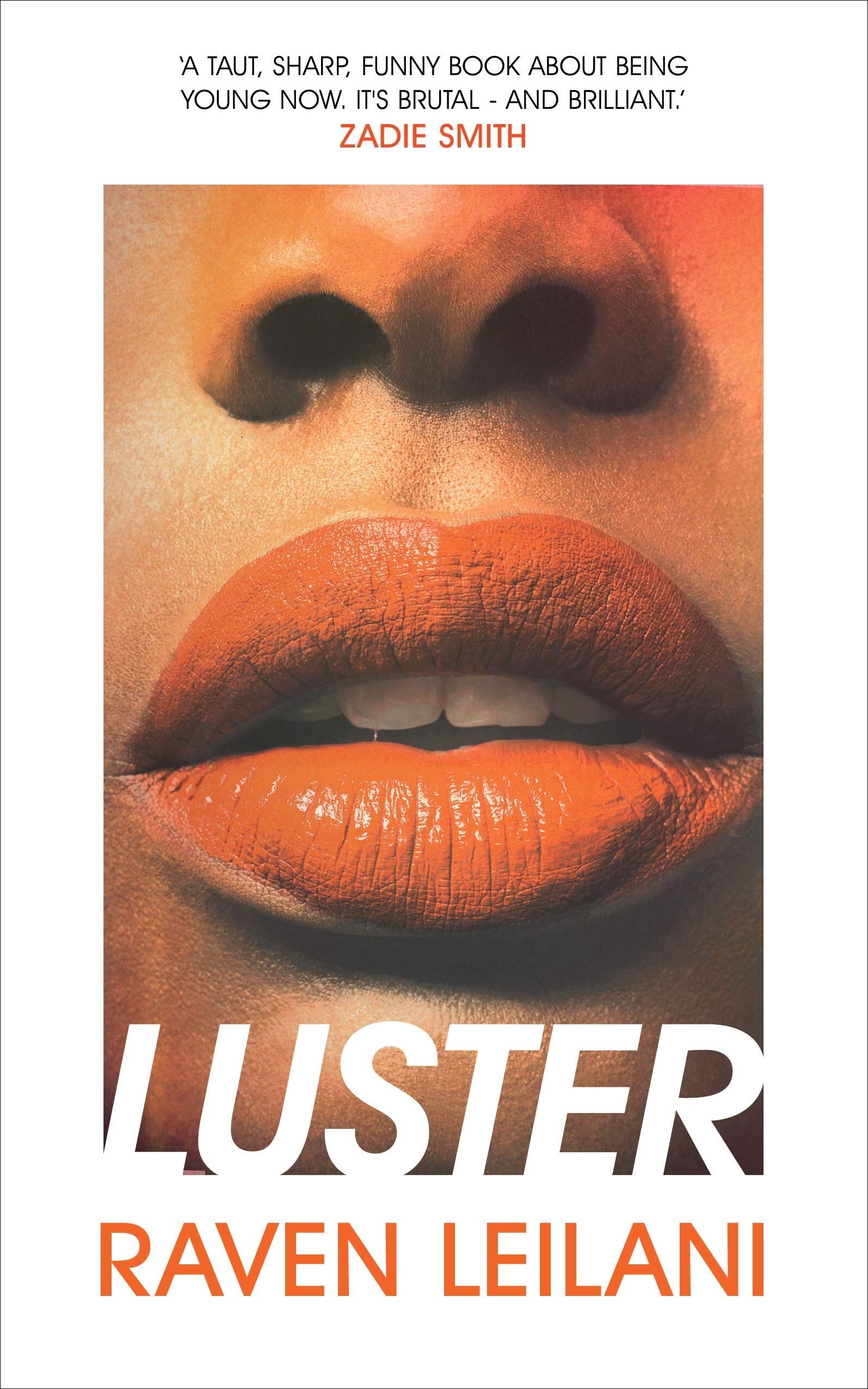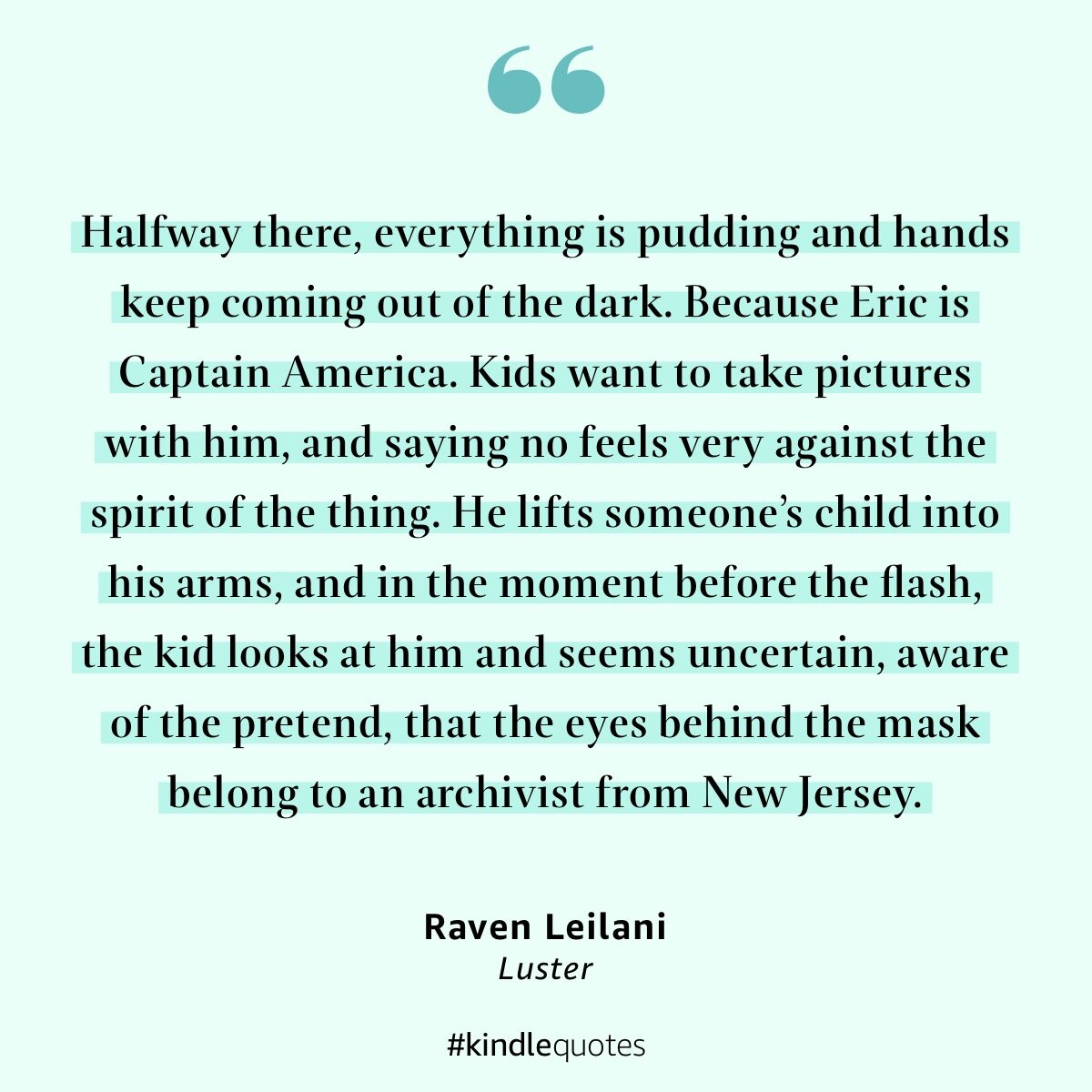Luster in the Louvre, please
When I breezed through Naoise Dolan’s Exciting Times, at pretty much the clip that I’ve breezed through Raven Leilani’s Luster, I couldn’t stop laughing through my nose. I also couldn’t stop pausing to lift attractive quotes with that handy little mechanism Amazon’s built into their Kindle app, and it took impressive restraint to not bombard homies with them. Leilani’s book is no less quotable, but it sweeps above and across a tight and compact landscape, certainly emotionally, in a fashion that makes it very hard to dismount ever; to pause and extract things. If Luster is a ravine, albeit set in a rather unkind portrait of life in the modern age, so many of its sentences are steep drops lush with sky, dazzling blue streams, beds of exotic flowers, that it becomes mentally impossible to decide which of its glories to souvenir.
Edie is a young black New Yorker in her early 20s, whose lack of self-worth is powered by an economic disenfranchisement that’s normally difficult to verbalise, and that begets severe intimacy issues. Edie is also a painter, a preoccupation she has neglected in order to try and stumble through some kind of grown-up existence. She has a roommate who shuffles in and out of a shared apartment, which is itself shuffled in and out of by rats and roaches. When we’re first acquainted with Edie, we learn fairly quickly that she has a ho-hum job at a novelty publisher: close enough to the action to be in the vicinity of what should be her dream job; but also close enough to merely be tantalised. She’s maybe only really there to help make up the numbers, and since she has the self-awareness to disregard self-awareness entirely, titillate most of her male and white co-workers. Here is Leilani, sparkling, as Edie describes the peculiar but familiar oddity of being one of only two black women in the building.
After Edie meets Eric, who is middle-aged and married, Leilani sweeps back and forth across time to illustrate the sense of hopelessness that has haunted Edie her whole life. By the time she moves in with Eric’s family, in a strange armistice assembled by his wife, you’re choking up at every injustice (self-inflicted or not) that befalls poor Edie. You don’t even get the often cheap sense that the storyteller is dragging us back and forth across time, because Leilani is a connoisseur of the setpiece — selecting her moments (yes) the way an artist decides what to capture on canvas. This is by now the over-worn cliche of reviewing Luster, but it’s true: when Leilani pauses to describe loveless sex, or a package delivery gone awry, or the rare calm of Edie playing video games with Eric and Rebecca’s black and adopted teen Akila, every sentence is like a balloon filled to bursting point with colour. A book about an impoverished black woman, who moves in with a married white man and his family at his white wife’s behest, is a quite sensational proposition of Texas Hold ‘Em; and Leilani’s bluff fucking delivers, constantly.
So much of Luster’s architecture is about finding warmth and peace within so much inherent hostility. Edie is parentless and without genuine prospect in a city that refuses to do anyone any favours. Of course her lover’s wife detests her, despite extending her an invitation into her home. Of course Akila resents that her parents would host the woman her dad is sleeping with, and of course she resents the suggestion, however tacit, that they embrace one another’s blackness. Edie and Akila’s beautiful tragedy is that they’re forced to eventually. But what curious magic crackles in the idea that any mistress and any wife would find ways in which to align interests, to complete each other for a time, and yet all throughout neither Leilani nor Edie presumes absolution. The impending doom of real life, of the city, layers over every last sentence of this tragic acceptance of the way things are.
One of the novel’s closing sequences is at a New York Comicon, a perfect summation of the idea that far too many of us are simply pretending at life, purporting anything other than basic existence, just to make it through. People will forget and dismiss Luster because it’s too contemporary a work; too modern, too fresh, over too quickly. But Leilani’s sentences deserve to be displayed in galleries: oil-painted, embroidered, archived, parsed for socio-economic meaning.




